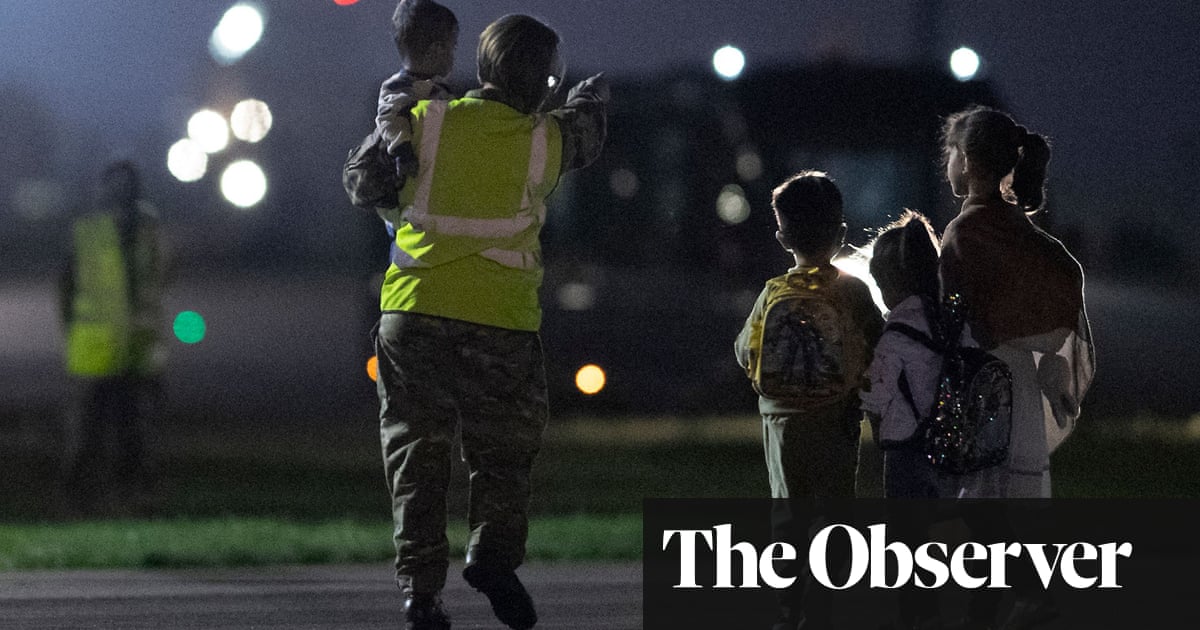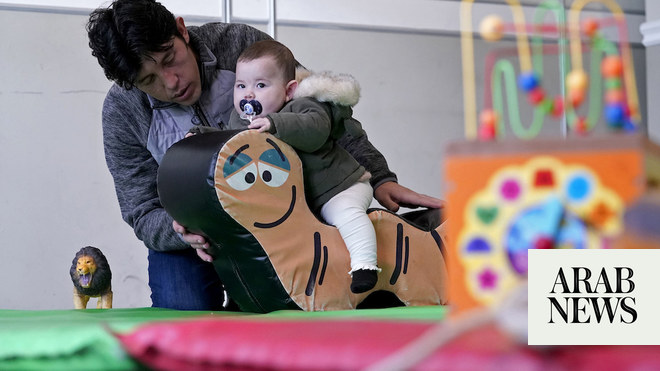
Mohammad Ashraf Rasooli, 70, looks at his five-year-old granddaughter, sitting on the floor next to him watching cartoons on a phone. They live in a two-bedroom flat in a suburb of Athens. “Even tomorrow, we don’t know what will happen to us,” he says.
The former judge and legal adviser to the Afghan Ministry of Justice, who had a role in putting together the 2004 Afghan constitution, is facing eviction with his family, including his three grandchildren. This is in line with regulations in Greece, which state that once someone has obtained refugee status, they must leave the accommodation provided for them within 30 days.
Since being evacuated to Greece last October, the family have been in limbo, hoping to join relatives in the UK and grieving for lives left behind in Kabul. Due to Rasooli’s high-profile work, as well as that of his daughter, a former journalist, and his son-in-law Fazel Sultani, a prosecutor at the Ministry of Justice, the family had gone into hiding after the Taliban stormed Kabul.
“We had a lot of problems, because the Taliban were saying if somebody had worked with NGOs or international organisations we’d be killed. It was very difficult for me to be there; we went to hide in a few places until we got evacuated,” says Rasooli. He scrolls through his phone to show photos of his home, pointing out books on the shelves, including legal texts he wrote, which he has been told have since been destroyed by Taliban soldiers.
The family has tried to make the best of things and the children are in Greek schools, but until recently, Rasooli feared to go outside in case his papers were checked. They had to wait until this month to receive asylum seeker ID cards.
They struggled to navigate a catch-22 system whereby access to rent subsides requires having a rental contract, while landlords will not rent without proof of the subsidies.
Rasooli and his family are not alone, says Minos Mouzourakis, an advocacy officer at Refugee Support Aegean (RSA). “Destitution is almost inevitable for refugees recognised in Greece. Expecting them to promptly leave accommodation despite exclusion from social welfare and protracted, often year-long, delays in renewing documents is a policy choice breaching the country’s legal obligations according to jurisdictions across the continent,” he says.
RSA has gathered more than 100 testimonies of recognised refugees in Greece who have turned to jobs such as collecting waste cardboard around Athens to sell to recycling companies. For such work they may earn between €10 and €20 a day.
RSA has recorded cases where refugees returned to Greece have faced destitution, such as Soraya* and Somaya* from Afghanistan who were sent back from Sweden in June this year. They are now reliant on soup kitchens and solidarity networks and must wait until January 2023 to get identification documents. Some courts, in countries such as Germany, have halted returns of refugees to Greece judging that they are likely to face inhumane or degrading treatment.
“The situation for recognised refugees in Greece is dire. It is commonplace that people granted protection status in Greece face destitution and homelessness following their positive asylum decision,” says Lucy Alper, a legal coordinator with Refugee Legal Support in Athens.
“The only integration programme, Helios, funded by the EU and implemented by the International Organization for Migration (IOM) is not fit for purpose. Many people enrolled in the Helios programme cannot access the limited rental subsidies offered, as they must first open a Greek bank account, pay a deposit on a flat and sign a house contract via the government’s online platform. Barriers are at every turn, exacerbated by the bureaucracy of the Greek asylum system.
“Notwithstanding these failures, people are being evicted from their accommodation. There is no safety net,” says Alper.
The IOM says 19,000 people had leased an apartment so far, which spoke to the “feasibility of the requirements”. They added there are, “all the necessary services to support recognised refugees in finding and leasing apartments … IOM in coordination with its partners ensures support and interpretation in issuing all required documents … whenever obstacles are encountered, targeted support is provided to solve possible problems.” It says it had no “recorded cases” of difficulties from those who applied within the appropriate time frame due to bureaucracy.
Rasooli hopes to go to the UK under the Afghan relocations and assistance policy (Arap) but has a rejection that is under review. His initial rejection letter, seen by the Guardian, states that since he has asylum in Greece, he will have access to medical care and is in relative safety – facts disputed by NGOs who have documented the precariousness of life for refugees in the country.
For now, the family remains in Athens, hopeful for an offer of an apartment for the short term. Nothing about the future is certain.
The Greek Migration Ministry did not respond to a request for comment.












